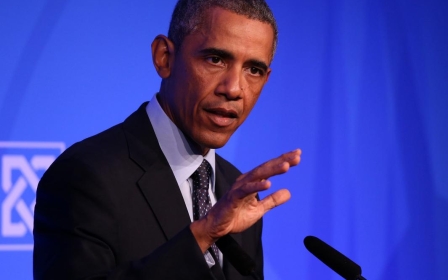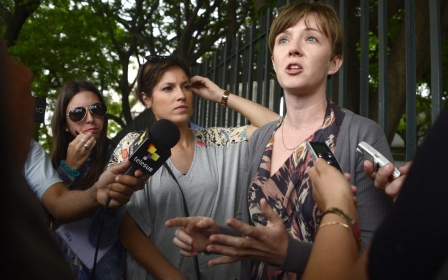US transfers five Guantanamo detainees to Kazakhstan: Pentagon

WASHINGTON, United States - Two Tunisian and three Yemeni detainees were transferred from the US-run prison at Guantanamo Bay to Kazakhstan on Tuesday, the Pentagon said.
The move is part of President Barack Obama's stepped up effort to close the controversial military jail, which was set up to detain terror suspects after the September 11, 2001 attacks.
The five men "were unanimously approved for transfer" after a thorough review by a task force of several US government agencies, the Pentagon said in a statement.
The transfer of the five detainees leaves 127 inmates still held at the prison, located at a US naval base in southeast Cuba.
The five inmates, who have never been tried in court and who were cleared for transfer by authorities in 2010 or even earlier, have spent more than 11 years at the Guantanamo prison.
The number of detainees transferred out of Guantanamo in 2014 is now at 28.
The prison at Guantanamo Bay -- which human rights groups have condemned as a "legal black hole" -- is approaching its 13th anniversary, as the first detainees arrived on January 11, 2002.
Of the 127 inmates still held there, 59 are cleared to be transferred to their home countries or third countries.
With the release of the two Tunisian detainees, there is only one Tunisian national still held at the prison. At one point, there were 12 Tunisian inmates at the jail.
The Pentagon identified the Tunisian nationals transferred Tuesday as Adel Al-Hakeemy, and Abdullah Bin Ali Al-Lufti.
The three Yemenis who were transferred were identified as Asim Thabit Abdullah Al-Khalaqi, Muhammad Ali Husayn Khanayna and Sabri Muhammad Ibrahim Al Qurashi.
Middle East Eye propose une couverture et une analyse indépendantes et incomparables du Moyen-Orient, de l’Afrique du Nord et d’autres régions du monde. Pour en savoir plus sur la reprise de ce contenu et les frais qui s’appliquent, veuillez remplir ce formulaire [en anglais]. Pour en savoir plus sur MEE, cliquez ici [en anglais].




